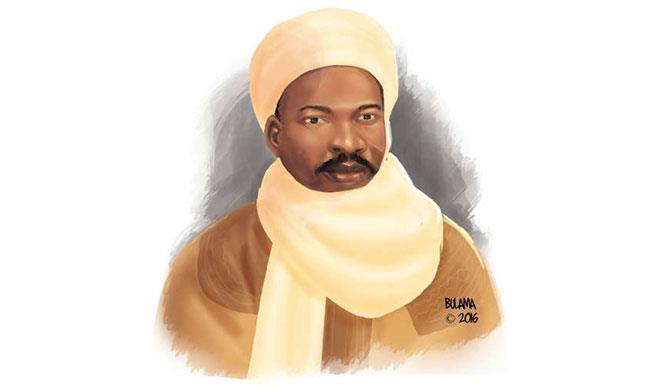Memories of a quintessential scholar and administrator
It is exactly thirty-eight years now that Nigeria, particularly present-day Nasarawa State, lost a gem, an intellectual giant, a fountainhead that illuminated great minds, some of whom are today holding major positions in the country. I refer to that erudite scholar and consummate administrator, Malam Muhammadu Gambo Wali. He was born in 1912 to a […]


It is exactly thirty-eight years now that Nigeria, particularly present-day Nasarawa State, lost a gem, an intellectual giant, a fountainhead that illuminated great minds, some of whom are today holding major positions in the country. I refer to that erudite scholar and consummate administrator, Malam Muhammadu Gambo Wali. He was born in 1912 to a Keffi prince, Malam Muhammadu Goriya, the son of Malam Yamusa, the son of Malam Abdu Zanga, the founder of Keffi. He had his elementary education in Akwanga, as he was soon to be taken into custody of his uncle Malam Isyaku Bashayi who was the appointee of the Emir of Keffi to exercise royal functions in Akwanga. Along with him were his two brothers of the same father, Malam Zakari Rabo (Wakili) and Alhaji Abubakar Aso (later Madaki).
In 1928, Muhammadu Wali broke with tradition, scaling a tough selection which gained him admission into Katsina College, the famous Barewa College, where he met his compatriots, including Shuaibu Na’ibi and Abubakar Tafawa Balewa. The two, along with others, constituted the Katsina College class of 1928-1932. With the successful completion of the programme, he was deployed to the Keffi Native Authority. Being the first to acquire that level of education and from that prestigious institution, he was quick to be drafted to teaching in Keffi and Kokona districts. He was then appointed the Chief Scribe of Keffi Native Authority, in the trend as his Katsina senior by two years, Ahmadu Rabah, later Ahmadu Bello, the first and only premier of the Northern Region, began his working career.
Evidently, Katsina College adequately prepared its products for strategic positions such as the Chief Scribe, who was next in hierarchy to the District Officer, deployed to the area from the colonial office in the early thirties. MG Wali also served in Nasarawa Native Authority as Treasurer and made occasional official visitations to Lafia Native Authority. Unlike ‘Portrait of My Father’ by former U.S President George Bush, this piece only seeks to appreciate. Like the Danmasanin Kano, Alhaji Yusuf Maitama Sule would say, MG Wali was one of the few Nigerians who went into public service to serve and not to be served, to give and not to take. Throughout his career, he served for honour, not silver and gold.
The striking point about this teacher and civil servant was the distinct and unique way he was reported to have held whatever responsibility that was entrusted upon him. He was humble, selfless and passionate in developing his area and grooming a generation of young teachers and workers who were readily absorbed to fill up existing gaps. Just before the Second World War ended, he joined the West African Frontier Force in response to the clarion call by the then Sultan Hassan Dan Mu’azu in solidarity with the British. After the war, he had a stint with the Gaskiya Corporation, Zaria, where he served on the Gaskiya stables, along with late Abubakar Imam and Usman Mairiga.
MG Wali finally returned to Keffi, as Native Authority Treasurer and later as Chief Scribe, back to his seat of Sarkin Malamai, before he retired from service sequel to an unsuccessful eye surgery. Even in retirement he remained a beacon of hope and a source of inspiration especially to the Local Authority staff, who watched with interest whenever he mounted the typewriter in his former office and typed his correspondence with his college mates, error-free. He remained a reference point to those who met him and his relations, friends and associates never abandoned him, including those that held ministerial appointments before the country’s independence. He died on 9th April, 1978.
Though gone, his disciples including this writer, still remember him for his sense of humour, simplicity, integrity and abiding faith in the Almighty Allah. One could recall that at a tender age, he had exposed us to books on Islamic Jurisprudence, ensuring he took us on the various curricula of our class ahead of our classmates. To me, he was not only my biological father, but my first teacher, a mentor, a role model, a major source of inspiration and a comforter.
Recently, a revered cleric, Bishop Hassan Kukah, wrote to the first Premier of Northern region, Ahmadu Bello and the First Prime Minister of the Federal Republic of Nigeria, Abubakar Tafawa Balewa (Daily Trust, Monday 25/2/16) and he remarked: “Today, rather sadly very few young people know anything at all about you largely because there are hardly any significant national monuments to commemorate you.” He then suggested the naming of a chair for the Study of Diplomacy and International Relations in the Abubakar Tafawa Balewa University, among others, to immortalise the late, great leader. Similar courtesies could be extended to this servant of humanity who served as a bridge-builder between the indigenous Emirate traditional rulership and the alien colonial administration at the Native Authority.
Malam built a strong foundation for the Native Authority system and strengthened the educational curriculum of primary schools and more. He effectively coordinated, mobilised and raised the level of political consciousness of the people, serving as a pillar of the Northern People Congress in the area. It would be wished that the Nassarawa State Government/Keffi Local Government consider the naming of the Local Government Secretariat or any institution after this unsung great mind and others equally eminently worthy of being commemorated: Doing so will greatly encourage the younger generation to give their best to humanity. From those of us who were mentored by him and have remained loyal, the attachment has only waxed stronger. May Almighty Allah grant him Paradise, ameen.
Wali wrote in from Abuja.
